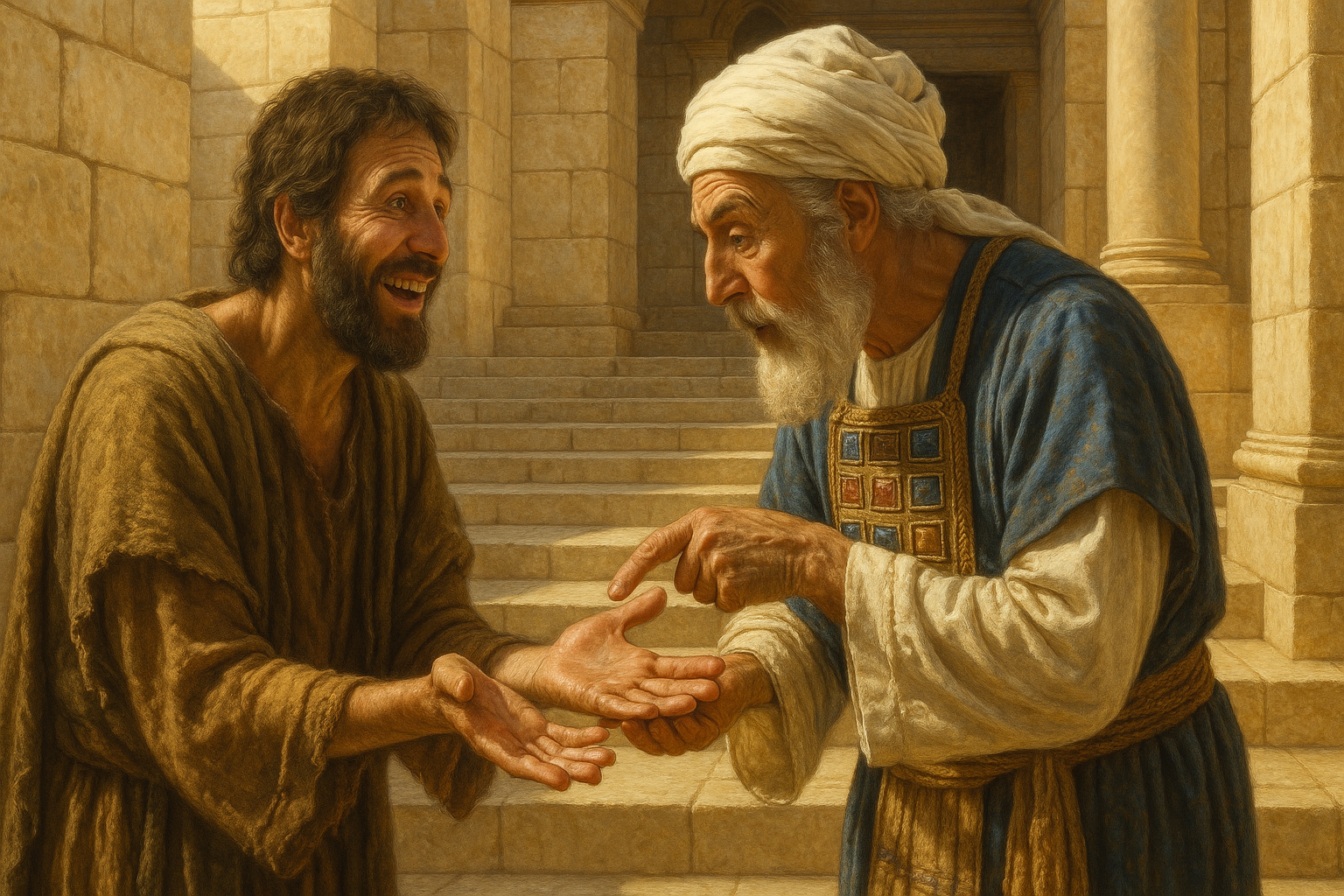"As a Testimony to Them"

Right after the Sermon on the Mount, Jesus comes down the hillside and meets a man with leprosy who kneels and says, “Lord, if you are willing, you can make me clean.” Jesus touches him. “I am willing. Be clean.” Immediately he is cleansed.
Then Jesus says, “Show yourself to the priest and offer the gift Moses commanded, as a testimony to them” (Matt 8:4).
That last line matters.
The Law required that anyone cleansed from a skin disease be examined by a priest and make offerings as laid out in Leviticus 14. It was not optional. The priest had to see the person, verify the healing, and then carry out a detailed ritual over several days. In other words, the healing did not stay on the street where it happened. It was walked into the temple system.
And this wasn’t a five-minute appointment. Leviticus 14 outlines a complex process: the priest had to examine the person, then order two birds, cedar wood, scarlet yarn, and hyssop. One bird was killed over fresh water, the other set free. The cleansed person shaved, washed, and waited outside their tent for seven days. On the eighth day more offerings were required—lambs, oil, grain—presented in an elaborate sequence. Each step demanded the priest’s direct involvement.
In short, every healing meant days of ceremony, sacrifices, and scrutiny. Every man or woman who showed up clean forced the system to reopen Leviticus and walk line by line through its rare instructions.
Now scale that up. Later in the same chapter we read that many were brought to Jesus and he healed all who were ill (Matt 8:16). Matthew links this to Isaiah: “He took up our infirmities and bore our diseases” (Matt 8:17).
The word "many" here is not a handful. Mark describes the same night in Capernaum by saying “the whole town gathered at the door” (Mark 1:32–34). Luke adds that crowds came from Judea, Jerusalem, even Tyre and Sidon, and “he healed them all” (Luke 6:17–19). In villages like Capernaum this could mean dozens healed in one evening; in larger gatherings, hundreds. Spread across months of travel through towns and cities, the cumulative total runs easily into the thousands.
If even a portion of those healings required priestly verification, the temple courtyards would have felt the ripple.
Lines would be forming. Names needed recording. Priests carefully inspecting skin that used to be ruined and now looked new. People asking, “How?”
The answer kept returning to one name.
For the priests, these could not be dismissed as rumors. They became their case files. Each examination pressed on their theological framework. Leviticus 14 had been written for rare occasions, yet in Jesus’ wake it would have become strangely routine.
Imagine the administrative shock.
More importantly, imagine the spiritual confrontation. Every verified cleansing was making the statement, “God is acting in your days.” Jesus told the first man to keep quiet publicly, but he ensured the testimony would land where it could not be ignored.
And for each healed person, the testimony was so much more than a witness to the establishment. The priest’s declaration meant rejoining family, worship, and community life. The same law that once cut them off now carried them back in. Mercy left its evidence not only in temple records but in restored lives.
The healings were each amazing acts of compassion, but at the same time, the scale pointed to something bigger. Matthew remembers Isaiah’s words about the Servant: “He took up our infirmities and bore our diseases.” In other words, this flood of healings was revelation. Every priestly verdict of “Clean” spoke the larger truth: God’s promised Servant had arrived in their days.
The priests were trained to test claims, evaluate purity, and guard the holy. Suddenly holiness is dwelling among them in human form, and purity is spreading outward from his touch instead of being threatened by contamination by the unclean.
So when you read Matthew 8, do not picture only a private miracle. Picture the temple office filling with healed people, Leviticus reopened, and the priest who has to say, “Clean”
... again ... and again.
Until the testimony could no longer be ignored.